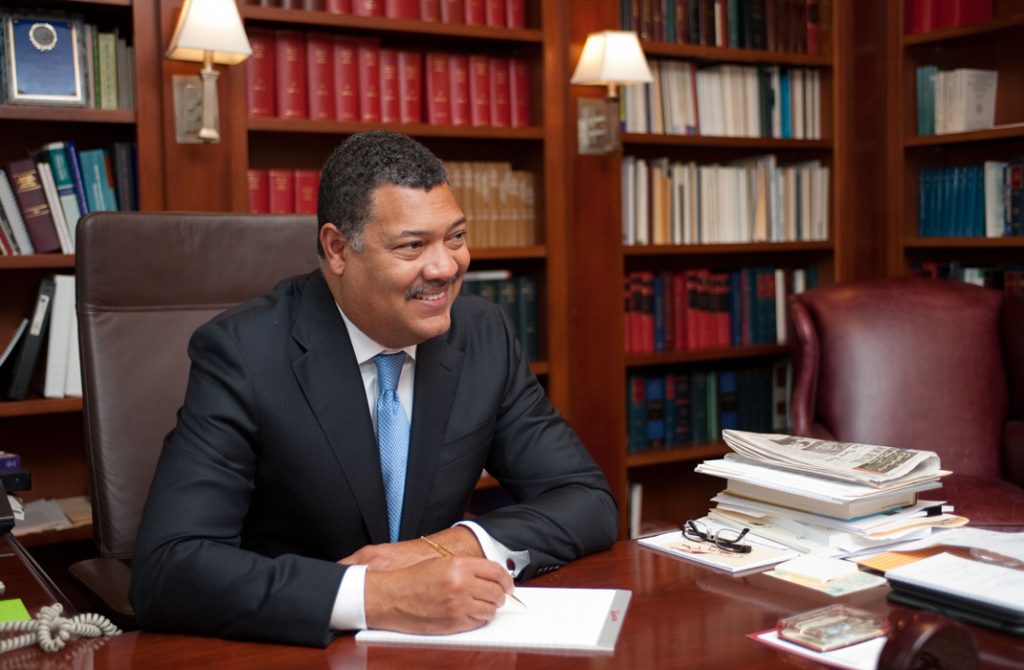In a recent Sunday edition of the New York Times, op-ed columnist Frank Bruni reminded us that of the 965 grants given out by the MacArthur Foundation, 209 awardees were born outside the United States. Remember that these awards are given only to US citizens or residents. In other words, 22% of these “genius grants”—signifying the most gifted and inspirational people in the US—are awarded to immigrants. This actually greatly underrepresents the impact of immigrants, since many more awardees are first-generation Americans whose parents immigrated to this country.
The column, titled “Want Geniuses? Welcome Immigrants,” is an eye-opening read. It serves to illustrate an important reason those of us in higher education are so concerned about the recent battle over Deferred Action for Childhood Arrivals (DACA) and other immigration-tightening moves from the current administration: We’re in the business of educating smart and creative people, and there are a lot of smart students outside this country. But attracting the most talented international students to campus brings other crucial benefits to our university communities as well, including the addition of diverse perspectives that enrich our learning environment and contribute to student formation.
In Jesuit education, we often refer to “cura personalis,” or “care for the whole person.” It is a concept that resonates deeply with me, particularly these days. It is not enough to simply educate solid legal practitioners; we look to educate good citizens who lead fulfilling lives both inside and outside the courtroom.
To achieve this, students must understand what inspires them, what they are truly good at, and how their talents can enrich the world around them. At BC Law, we focus on these questions at our Sidebar retreat, where students and faculty gather for a weekend of discussion and discernment. We bring them into our classroom teaching, our 1L workshops, and extra-curricular activities. We try to incorporate them into our career counseling sessions and our faculty advising.
All of these efforts are limited to the perspectives in the room. Without a truly diverse set of experiences and viewpoints contributing to the discussion, how can we possibly illustrate what it means to be an engaged citizen in today’s globally interconnected world? How can we help students find their inspiration when it may lie beyond our own borders? How can we “educate the whole” when entire pieces of our worldview are missing? As An-My Lê (a Saigon refugee and one of the MacArthur genius award-winners quoted in Bruni’s column) says, “Having the different perspectives, having the different life experiences, makes you see things differently.”
Seeing things differently sparks the genius and creativity that we seek to inspire through higher education.
This is why our event programming has been dominated recently by discussions over immigration, the travel ban, DACA, and refugee law. It is why we focus resources on our Rappaport Center for Law and Public Policy, Clough Center for the Study of Constitutional Democracy, and Center for Human Rights and International Justice. It is why our Immigration Clinic, Post-Deportation Human Rights Project, and so many of our talented alumni are taking up the immigration fight.
Immigration is the lifeblood of this country. It always has been. It is the lifeblood of campuses of higher learning, and without it, America’s reputation as the global leader in higher education will eventually wither and die. As Bruni illustrates, there are far more geniuses, artists, entrepreneurs, and lawyers coming into this country than murderers and rapists. It is past time we recognize that fact, work to protect those who are most vulnerable, and celebrate what they contribute to our campus communities—not just their intelligence, but the perspective they bring as we continue the lifelong search for what drives us, inspires us, and brings us joy.


